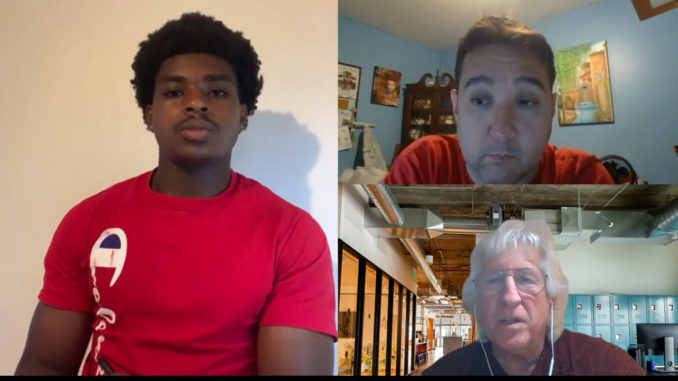
For many teachers in Broward County and throughout the United States, the COVID-19 pandemic has made teaching difficult. These difficulties have required us to re-imagine how we teach and engage our students. Utilizing a project-based approach, my students and I collaborated to begin documenting the stories of people in our communities who were pioneers when schools were being integrated 50 years ago.
The goals of our current project are threefold: first, to understand the experiences of students, staff, and faculty that helped integrate Broward County schools from 1963-1973; second, to document the hardships and successes during this time period; and third, to recognize and preserve the historic contributions of these individuals. Our project was recognized by the Broward County School Board in February. See the video here (https://bit.ly/3xbC8yg). The reflections below were written by students who participated in the project. Each week, additional students will share their experiences participating in the project.
By Amya Wallace
This past year in African American History has been truly eye-opening as we celebrate the 50th Anniversary of Broward County Schools’ integration. As a class, we’ve interviewed multiple people and have learned about their personal experiences with integration. I’ve had the honor to interview Dr. Rosalind Osgood, who’s currently the only African American female on Broward County’s school board, with a few other students in my class. Even though she wasn’t in school at the peak of integration, it was still an amazing learning experience for the entire class. We learned about her childhood, experiences in school, and how everything has brought her to where she is today. We’ve also interviewed a local Broward County teacher who was in high school while schools were being integrated and his experience alone was enlightening. He discussed his school memories, the challenges African Americans faced, and a multitude of other things.
Above all that, these interviews are done via Microsoft Teams out of consideration for the coronavirus, but this also helps with ease of recording and storing. Therefore, we can always go back, re-watch, and relive the interview. Aside from learning about our interviewee’s intriguing pasts, conducting oral history interviews has allowed our class to work together and despite being separated by screens, we can grow closer by contributing our ideas to our vivacious discussions before and after the interview.
I believe that those taking this course next year will truly benefit from interviewing a myriad of individuals and hearing about so many different backgrounds. Conducting oral history in-terviews acts as both a learning experience and a piece of history in recorded form. As a class, we’re calling upon our community for support. In order to keep these in-terviews alive and running, we need volunteers to help contribute. Not only would you be benefitting the entire class, but you’d also be a part of permanent history through your storytelling.
In learning United States history, often we hear of events that took place in an entirely different stage or region. Many feel a disconnect from history for this very reason, and often feel underrepresented in their own classrooms. We’ve all learned of the fight against segregation throughout our educational careers, through the Montgomery Bus Boycott, March on Was-hington, Ruby Bridges, and Brown v. The Board of Education, the court case which in 1954 made segregation in schools illegal. But how many have learned about Allen v. Board of Public Instruction of Broward County, which forced Broward schools to integrate in 1970, almost fifteen years after they were already supposed to have already been integrated? Who has been taught the history of integration in their own school, let alone their own county?
By Jami Zeller
At the beginning of the school year, I saw a sign that said Plantation High School opened in 1964, and immediately wondered if the school was integrated then. I hoped to learn about the history of segregation at my own school in my African American History Class. And luckily, though unexpectedly, we did just that, through our History Across Broward initiative, with which we have been able to interview several individuals who attended Broward County Public Schools during integration, or a few years after, and hear their experiences at Plantation High School or schools not 20 miles from our own. Interviewing adults about their school experience is surreal and jaw-dropping. It shakes you to your core to hear that students at Fort Lauderdale High School waved around a confederate flag at pep rallies. It’s inspiring that Dr. Rosalind Osgood, who was called dumb by her third-grade teacher is now the only woman of color on the Broward County School Board. It’s chilling to hear that the origins of magnet programs were not so pretty, that black students were often not given the same opportunities as their white counterparts.
At a time where advancements are made so rapidly, it is vital that we hold on to voices from 50 years ago, who, as kids, made major strides that have improved the quality of life for people of color. History repeats itself, and without keeping records of the past, we lose guidance for the future. If you have a story to share, I implore you to do so, to help the entire community feel a connection to our own history. In 50 or 100 years, most won’t be around to tell their stories of integration. We are all a part of history. Why not share yours?
If you are interested in being interviewed for this project, please contact Roberto Fernandez, III at Plantation High School (754) 322-1850.


Be the first to comment